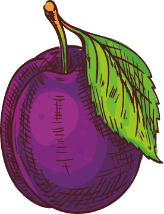
Auburn School District’s Farm-to-School Program in Auburn, Washington
November 04, 2011
Most American schools today are faced with such overwhelming budget difficulties that providing more healthy food options for students is simply not feasible. Unfortunately, not only can a poor diet greatly increase students’ risk for obesity and other health issues, but what students eat can also have profound effects on their ability to learn and perform well in school. One school district in Auburn, Washington has managed to overcome budget difficulties and ensure students have access to healthy food to eat.
Since 2006, the Auburn School District has maintained a symbiotic relationship with local farmers in order to provide students with access to healthy food choices. Each year, local farmers grow a large supply of fruits and vegetables to be stored in district warehouses. Throughout the year, this food is distributed to each of the 21 schools in the district and made available to students for lunch, breakfast, and summer food service programs.
A benefit of this program is that the food provided by the farmers is primarily fruits and vegetables. This is a huge advantage compared to what the majority of schools offer students, as fruits and vegetables tend to be satisfying without containing a great many calories. Due to the high degree of satiation provided by these foods, students will consume fewer calories throughout the day and will be significantly less likely to suffer from the negative effects of excess weight gain and child obesity, a condition dramatically increasing among students across the country.
Fruits and vegetables also contain many beneficial nutrients. The fruits and vegetables grown from local farmers contain very high amounts of vitamins, minerals, antioxidants, and phytonutrients that are not often found in school lunches, providing students with an enormous health advantage to their diet. Furthermore, the majority of food acquired in the Auburn School District food program is organic, meaning it’s devoid of excess levels of harmful pesticides that can be detrimental to those who consume them.
Along with using food from superior sources, another perk of the Auburn program is that the cooks at each of the schools have been specially trained to prepare food as healthily as possible. For example, between 2008 and 2009, the school acquired over 15,000 pounds of organic red and Yukon gold potatoes. Rather than using these to create French fries or tater tots as many schools would, the cooks oven-roasted and prepared them without frying, rendering them significantly healthier.
An additional component of the program is the garden club and “Summer Food Academy.” Students who attend this optional event are given the opportunity to learn how to grow healthy foods straight from the garden. Afterward, students learn basic cooking skills to prepare these foods in the kitchen. These skills are immensely valuable and yet are not taught in the vast majority of schools. Establishing a program like this can help establish positive eating habits for the rest of students’ lives.
Overall, the food program implemented by the Auburn School District is a simple yet revolutionary approach that can provide improved dietary health and food education to students in participating schools. With so many health problems among American youth being attributed to poor diet these types of food programs can have a profound effect on the future of the nation’s health. For schools looking to improve the physical and mental well-being of their students, few options are more favorable than emulating the food program of the Auburn School District. You can learn more about the program here.
Farm to School is the national initiative to connect K-12 school districts to local farms. As schools continue to join this initiative, a growing network will allow costs of implementing local and sustainable foods to decrease.







